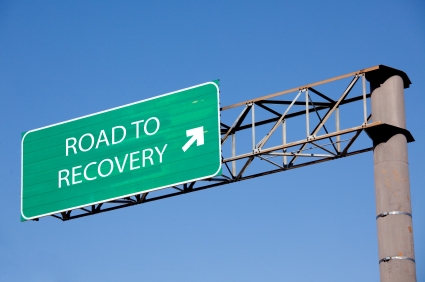Detox
Most addicts don’t enter rehab sober, so treatment usually starts with detoxification. We use alcohol detox as an example of what happens during withdrawal because almost everyone has experience with hangovers. But, as “Detox: Physical” and “Hangover versus Withdrawal” describes, an alcoholic’s detox is a qualitatively different physical process than an occasional hangover. Though the physical pain of detox can be severe, it’s only half the picture and the easier half at that. Far harder is the psychological dislocation, particularly when it happens in rehab, where the explicit expectation is that this has to be the last detox, that this time quitting is forever. For an addict, that’s about as daunting as anything gets.
Like most addicts I’ve known, I suffered through dozens of unsupervised self-detoxes over the years when I became so ashamed of feeling weak and sick and decided to give up drinking for a while. “For a while,” was the key. I never intended to stop forever. I had the fantasy (though I didn’t know that’s what it was at the time) that if I quit temporarily and got healthy I’d recover enough strength to control my drinking.
I thought my problem was a lack of willpower. I reasoned that with new-born fortitude fueled by the recent memory of detox pain and renewed physical strength I could simply decide to better concentrate my willpower — that I could choose to drink like a normal person. But since I assumed I’d magically regain my self-control, almost as soon as I felt better physically I put it to the test and within a day or three was back to the bewilderment of learning, again and for the umpteenth time, that feeling strong physically didn’t give me the willpower I wished for.
What I didn’t notice, at least consciously, was that over time the self-detoxes got harder and longer. They went from two days to three and four. And then five. But subconsciously, I must have known because the fear of detox escalated drastically with each successive one. I’ve often heard this fear expressed in newly sober patients as, “I don’t think I have another detox in me.”
Researchers say worsening detoxes result from escalating tolerance, which forces addicts to use more and more drugs to maintain the baseline of intoxication necessary to feel normal. As use escalates, the baseline does as well, making the physical shock of withdrawal all that much harder. The fear of the pain of withdrawal looms so large in the memories and imaginations of addicts, most will do almost anything to avoid it.
With rehab-directed hindsight, I could see that my many self-detoxes resulted in temporary sobriety but not safety, that feeling strong physically didn’t keep me secure for long. Hospital detox was far different. After a couple weeks of care I became willing to listen and reached intellectual acceptance of my alcoholism: I could see I’d lost all control over my drinking once I started. That convinced me I had to jettison the idea of quitting only “for a while,” a tectonic shift. It made me realize for the first time that the strength my self-detoxes brought led inexorably to a mental license to drink again. Rehab convinced me that I had to build a defense against that license. In other words, I had to stop kidding myself that I could ever return to normal drinking.
The articles in the Detox series are:

